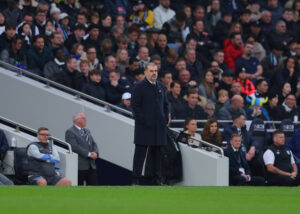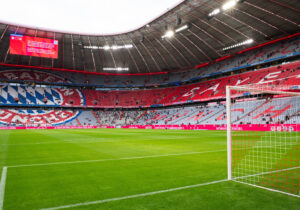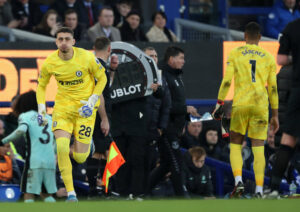The recent release of televised Premier League matches caused some annoyance on social media. New kick-off times for midweek and bank holiday matches threaten to cause problems for some sets of fans but the ignorance from those above should be expected.
Primed and Ready
Amazon Prime are the new boys on the block. They have joined Sky Sports and BT Sport as broadcasters of Premier League football in the United Kingdom. The streaming platform has acquired the rights to 20 matches in December: the first set of midweek fixtures followed by Boxing Day’s roster.
The majority of the kick-off times for midweek matches are now at 19.30 while one later match is shown at 20.15. This later match shows no consideration for fans; there is no thought for those who begin work in the early hours of the following day. There is no consideration for those in areas where public transport is less frequent in the later hours of the day.
Football is becoming less about the fans and more about the television broadcasters. It is such a lucrative business and these broadcasters want to get optimum viewing figures for their matches. It is similar to the new UEFA Champions League time-slots; games previously kicked off at 19.45 but new changes meant that some matches began at 17.55 and others started at 20.00. In this new format, less popular matches would not clash with the better alternatives and would therefore get more viewers.
Commercial benefit
Regarding the Premier League, a 20.15 match is going to benefit the broadcaster in one of two ways. The Premier League fan will watch their team play at 19.30 before watching most of the second-half of the later game or a fan may watch the first 45 minutes of an earlier game before switching to the main match at half-time. It is maximising an audience.
It is understandable that television companies want to squeeze every last ounce out of the matches that they own. The cost of acquiring rights to the Premier League and its packages is insane! And it is worth remembering that this money is what brings in some of the world’s best superstars and managers. At the same time, a football fan has never been further away than they are today.
Pricey Business
If somebody in the UK wants to watch all the live Premier League matches, in a legitimate way, then they will be making a sizeable investment. It will require subscriptions to Sky Sports, BT Sport and Amazon Prime. Sky and BT will offer various packages that bundle the sports channels in with their broadband while Virgin Media offer both sets of channels with Ultrafast broadband for a whopping £72-per-month. That’s not counting the Amazon Prime subscription, although, savvy new subscribers could look to activate a free month of the streaming platform when they broadcast their Premier League matches in December.
Armchair football seems to be more convenient than travelling to the matches themselves which is also an expensive venture. Season tickets at the Emirates and Stamford Bridge can push past the £1000 mark. Even a season ticket for Burnley, priced upwards of £390 for adults, is a lot of money when you size up the average workers wage in East Lancashire. It’s even more money when you consider bringing your child with you. Football, the game that was for everyone, is becoming more suited to the wealthy.
The extortionate rights of the Premier League should give the fans some leeway. In reality, there is no reason for season tickets to be any higher than £200 because it contributes so very little to the revenue of a Premier League club. Across Europe, particularly in Germany, money is more sensible.
Brilliant Bundesliga
Fans in the Bundesliga are treated with more respect. A Borussia Dortmund season ticket for this season would have cost around £188 (219 euros). A Bayern Munich season ticket would have cost around £123 (145 euros). Talk about value for money. There is also a much simpler television deal in place with the majority of matches still starting at 14.30 on Saturday. It might not have quite the same attraction as the English first division but Germany’s top tier is at least more authentic and it remembers the importance of the fans. There is a lot to admire.
Fans Exploited
Football in England is being exploited by greed. The men in suits are running the show and it’s becoming much more commercial and business orientated. Players like Calum Hudson-Odoi are becoming millionaires before they have had the chance to properly prove themselves and joins the long list of youngsters who are overindulged with riches.
Unlimited money is inevitably a burden as much as it is a blessing. Financial planning goes out of the window. Players can demand big salaries and often they will get it. They lose their hunger and desire because they have already made it as a big-shot; that’s what their salary says. The commercial side of the Premier League creates these situations. They don’t care about making players artificial in the same way that they don’t care about disrupting a fan’s ability to go and watch their team.
The Midas touch is alive and kicking, for better and for worse.
Main Photo
Embed from Getty Images






